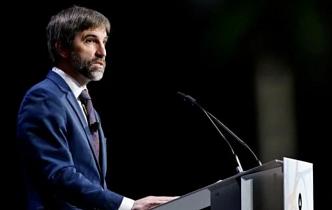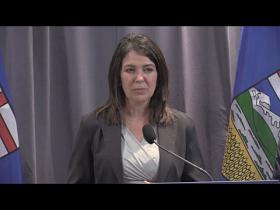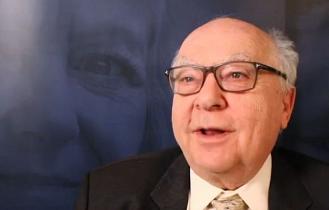Legality of Ottawa's new 'net-zero' electricity ultimatums unclear, say constitutional scholars
OTTAWA – As the premiers of Alberta and Saskatchewan prepare to fight Ottawa’s new draft regulations to force through a “net-zero” power grid, legal scholars say it’s iffy who might win a potential constitutional court battle.
“The question really doesn’t really turn on as much where provincial jurisdiction lies as how far you can stretch federal jurisdiction,” said Andrew Leach, a professor of law and economics at the University of Alberta.
Environment Minister Steven Guilbeault unveiled his plan Thursday to mostly force fossil fuels out of Canadian electricity generation by 2035, while also significantly expanding the amount of power to meet rising electrification mandates. While Ontario, Quebec and British Columbia rely mostly on carbon-free hydro or nuclear power, Alberta and Saskatchewan, as well as other provinces, rely heavily on fossil fuels to generate electricity. The new rules will require any power plants that cannot get to zero emissions to shutter.
On Thursday, after the draft rules were introduced, Saskatchewan Premier Scott Moe it wasn’t feasible for his province to meet the 2035 targets for net zero, a term which means emissions are technically eliminated, after accounting for offset credits.
“Trudeau’s net-zero electricity regulations are unaffordable, unrealistic and unconstitutional. They will drive electricity rates through the roof and leave Saskatchewan with an unreliable power supply,” Moe said.
Alberta Premier Danielle Smith said she is prepared to fight the new regulations in court and her environment minister Rebecca Schulz told a Calgary radio station the UCP government could invoke its sovereignty act, which is meant to shield the province from federal legislation it considers harmful.
“If they continue to come out with irresponsible and completely unachievable targets … we will use every tool at our disposal to represent the best interests of Albertans,” Schulz said.
University of Calgary law professor Martin Olszynski said the federal government’s regulations, which set up a specific prohibition on greenhouse gases from power production, appear to take advantage of Ottawa’s criminal enforcement powers. He said those powers go beyond what people typically associate with criminality and allow the government to prohibit certain things, such as tobacco advertising or toxic substances, when it can demonstrate a clear purpose for doing so.
He said there is a lot of precedent going back decades that allows the government to use these powers on a national scale to regulate the environment and he sees an uphill battle for any constitutional challenge.














